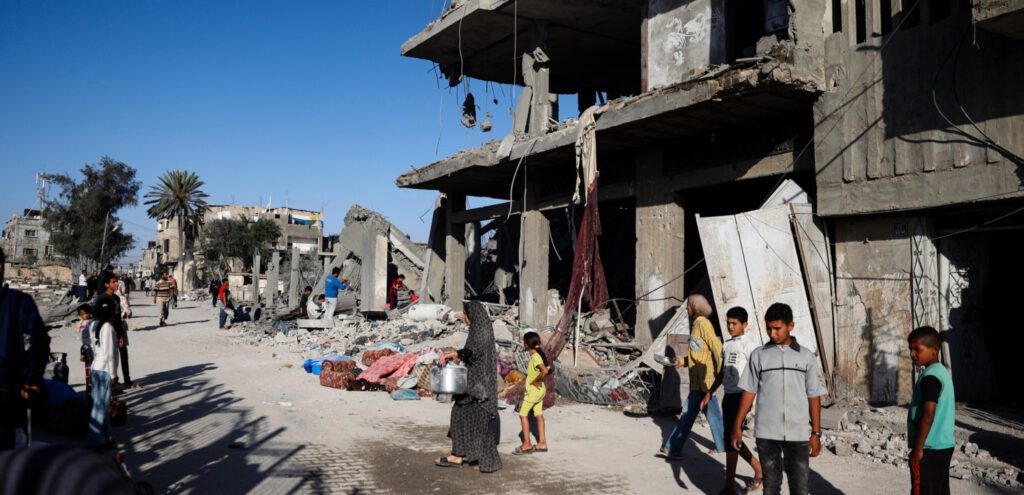The continued violence along Lebanon’s borders reflects the regional spillover of the Gaza conflict, with Lebanon’s civilian population bearing the brunt of these hostilities

News Desk
GAZA: Israeli aggression has intensified across Gaza, Lebanon, and Syria, with airstrikes leading to significant casualties as the humanitarian crisis deepens. In Gaza, relentless bombardment has claimed the lives of 44 Palestinians within the last 24 hours alone, according to Gaza’s Ministry of Health. Among these fatalities, 19 were killed in northern Gaza, where the situation remains particularly dire, while two Palestinians were also martyred in the West Bank.
These attacks bring the staggering total number of Palestinian deaths in Gaza to 43,552, with over 102,765 individuals reported injured since the escalation of hostilities began. In Lebanon, Israeli airstrikes have targeted various regions, including the capital Beirut and the coastal city of Tyre. The assault on Tyre led to the deaths of nine people, including a pregnant woman, underscoring the indiscriminate nature of the attacks. Over the past day, 52 Lebanese citizens have lost their lives, further exacerbating the humanitarian crisis in a country already grappling with economic and political challenges.
The continued violence along Lebanon’s borders reflects the regional spillover of the Gaza conflict, with Lebanon’s civilian population bearing the brunt of these hostilities. The impact of the aggression extends into Syria, where Israeli airstrikes on the cities of Aleppo and Idlib have wounded several Syrian soldiers. The strikes have escalated fears of a wider regional conflict, as Israel’s offensive actions extend beyond Gaza and Lebanon into Syrian territory, targeting areas already vulnerable from years of conflict and instability.
As the death toll mounts and the devastation widens, the international community’s calls for an immediate ceasefire have grown increasingly urgent. Humanitarian organizations and nations worldwide have expressed deep concerns over the targeting of civilian areas, highlighting the severe impact on non-combatants and the destruction of essential infrastructure in Gaza, Lebanon, and Syria. However, amid rising international pressure, no concrete steps toward de-escalation have yet materialized, leaving the affected populations facing further violence and uncertainty.
This escalation underscores the urgent need for diplomatic intervention and peace-building efforts, as the ongoing violence risks destabilizing an already fragile region. The cost of these hostilities — counted in lost lives, shattered communities, and an eroding hope for peace — remains devastatingly high, with immediate action needed to halt the crisis and bring relief to those caught in its path.



